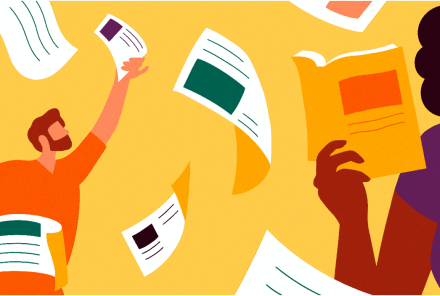Advertisement

We almost never think of guilt as something to be thankful for. Learning to forgive oneself for one's flaws and failings is an ongoing battle for many people and an important part of developing a deep sense of self-love. But for those of us who feel particularly prone to feeling bad over things we do or don't do, there's actually a surprising upside: According to recent research, you're likely a more trustworthy person because of it.
The study, published in the Journal of Personality and Social Psychology, found the tendency to anticipate guilt was one of the clearest indicators of trustworthiness. In six different experiments, researchers observed the way participants made decisions throughout money-related games and surveys and found those more prone to guilt were also more likely to return money to others. That propensity toward expecting guilt was more correlated with how reliable someone would be than a host of other personality traits, including extroversion, openness, agreeableness, neuroticism, and conscientiousness.
What mediated the relationship between the two—expecting guilt and being trustworthy—was a sense of "interpersonal responsibility." People who expect to feel bad about a potential action tend to do so because they feel responsible for other people's well-being and worry about how the action might affect them. These folks naturally tended to be more sensitive to other people's needs, the study found, and thus more likely to come through for them.
That's a pretty positive way to spin the concept of guilt. And just to pile on a few more surprisingly sunny connections: Benevolence (the desire to be kind) and integrity (the desire to uphold ethical standards) also fueled people's worry about guilt and their subsequent trustworthiness.
Now, importantly, harboring guilt is not the same as being prone to guilt. The former can cause us anguish if we dwell on past mistakes and can't learn to forgive and accept ourselves. But the latter can help us embrace empathy more fully, act more lovingly toward others, and avoid causing harm through carelessness.
So if it seems like you're always feeling guilty, first things first: Celebrate! You are someone who instinctively cares about others and who wants to do the right thing whenever possible, and that's something to feel proud about. Then you can figure out where your guilt stems from. Are you repeating the same mistakes? Acknowledge it, and make an action plan to change. Are you placing too many unreasonable expectations on your own shoulders? Spend some time listening to your body, repeating positive affirmations, and practicing more compassion toward yourself.
Most people experience guilt every now and then, and that's not necessarily a bad thing—as long as you're also celebrating yourself as the kindhearted, principled, and all the while beautifully imperfect being that you are.
Watch Next
Enjoy some of our favorite clips from classes
Enjoy some of our favorite clips from classes
What Is Meditation?
Mindfulness/Spirituality | Light Watkins
Box Breathing
Mindfulness/Spirituality | Gwen Dittmar
What Breathwork Can Address
Mindfulness/Spirituality | Gwen Dittmar
The 8 Limbs of Yoga - What is Asana?
Yoga | Caley Alyssa
Two Standing Postures to Open Up Tight Hips
Yoga | Caley Alyssa
How Plants Can Optimize Athletic Performance
Nutrition | Rich Roll
What to Eat Before a Workout
Nutrition | Rich Roll
How Ayurveda Helps Us Navigate Modern Life
Nutrition | Sahara Rose
Messages About Love & Relationships
Love & Relationships | Esther Perel
Love Languages
Love & Relationships | Esther Perel












